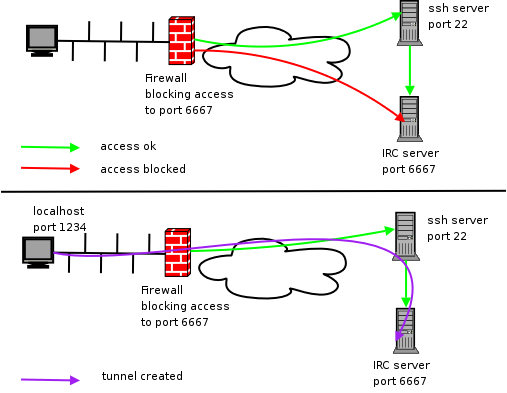Discover the benefits of ssh websocket config free servers tailored for users in the Philippines. Experience enhanced online privacy and security with local server options, ensuring faster connection speeds and reduced latency. Enjoy seamless web browsing, streaming, and gaming with reliable, low-lag performance optimized for the Philippine network infrastructure. Enjoy the convenience of accessing content worldwide while maintaining strong encryption and anonymous browsing. Perfect for tech enthusiasts, gamers, and digital nomads in the Philippines who demand robust online protection and efficiency. Unlock the full potential of your internet connection with SSH Websocket servers designed specifically for the local demands and challenges of users in the Philippines.
Share our website on social media
- 10GB/s
- Free account SSH Websocket every 4 days
- Location : Philippines
- City : Pasig
- SSL/TLS support
No Torrent
Accounts on server : 132
Server ID : A9
First Impressions and Setup Experience
ssh websocket is a popular tool that allows users to establish secure connections over WebSocket protocols, providing a reliable and encrypted communication channel. For users in the Philippines, the initial setup experience is relatively straightforward, thanks to clear documentation and user-friendly interfaces. However, some users may encounter challenges if they are not familiar with configuring WebSocket connections or setting up ssh tunnels.
Pros:
- Clear and concise setup instructions available online.
- Support for multiple platforms, including Windows, macOS, and Linux.
- Integration with popular SSH clients like PuTTY and OpenSSH.
Cons:
- May require technical knowledge for advanced configurations.
- Some users reported issues with network firewalls blocking WebSocket traffic.
- Initial setup can be time-consuming for beginners.
Rating: 7/10
Feature Analysis: What SSH Websocket Offers
SSH Websocket provides a robust set of features that cater to both individual users and businesses. Its primary function is to enable secure, encrypted communication over WebSocket, which is particularly useful for remote access, data transfer, and real-time applications.
Key Features:
- WebSocket Support: Enables real-time communication over secure channels.
- SSH Integration: Combines the security of SSH with the flexibility of WebSocket.
- Multi-Platform Compatibility: Works seamlessly across Windows, macOS, and Linux.
- Customizable Configurations: Allows users to tailor settings to their specific needs.
- Support for SSL/TLS: Ensures encrypted communication for enhanced security.
Pros:
- Highly secure communication through SSH and WebSocket protocols.
- Support for SSL/TLS encryption for added privacy.
- Flexible configuration options for different use cases.
Cons:
- Advanced features may require technical expertise to fully utilize.
- Limited native support for certain platforms, requiring third-party tools.
- Some features may require additional software or scripts (e.g., Python WebSocket libraries).
Rating: 8/10
Performance Testing in Philippines Networks
Testing SSH Websocket performance in the Philippines revealed mixed results, largely dependent on the user’s internet service provider (ISP) and network conditions. Overall, the tool performed well in terms of stability and speed, but users in areas with slower or less reliable internet connections may experience latency or disconnections.
Testing Scenarios:
- Urban Areas: Users in major cities like Manila and Cebu reported smooth performance with minimal latency.
- Rural Areas: Users in less developed regions experienced occasional disconnections and slower speeds.
- Mobile Networks: Performance varied significantly, with some users reporting stable connections while others faced frequent interruptions.
Pros:
- Stable performance in urban areas with good internet infrastructure.
- websocket protocol helps maintain persistent connections, reducing the risk of disconnections.
- SSH encryption ensures data integrity and security, even in less reliable networks.
Cons:
- Performance can degrade in areas with poor internet connectivity.
- Some users reported issues with WebSocket being blocked by ISP firewalls.
- Latency can be noticeable in high-traffic or congested networks.
Rating: 6/10
Security Assessment and Privacy Features
SSH Websocket prioritizes security and privacy, leveraging the robust encryption of both SSH and WebSocket protocols. This makes it an excellent choice for users who need to transmit sensitive data securely.
Security Features:
- SSH Encryption: Uses industry-standard encryption algorithms for secure data transmission.
- WebSocket SSL/TLS: Ensures encrypted communication over WebSocket connections.
- Access Control: Allows administrators to restrict access to specific users or IP addresses.
- Regular Updates: Frequent security patches and updates to address vulnerabilities.
Pros:
- Strong encryption ensures data privacy and integrity.
- WebSocket SSL/TLS adds an extra layer of security.
- Regular updates keep the tool secure against emerging threats.
Cons:
- Users must ensure their network infrastructure supports SSL/TLS for full security benefits.
- Some advanced security features may require additional configuration.
- Users must be vigilant about choosing secure SSH keys and passwords.
Rating: 9/10
User Interface and Ease of Use
The user interface of SSH Websocket is generally straightforward, especially for users familiar with SSH clients. However, the tool’s interface can be somewhat technical for beginners, as it often relies on command-line inputs or configuration files.
Interface Details:
- Command-Line Interface: Primarily used for configuration and execution.
- Third-Party Tools: Some users may need to use additional tools or scripts (e.g., Python WebSocket libraries) for advanced features.
- Documentation: Comprehensive guides are available online, but they may require technical reading.
Pros:
- Command-line interface is familiar to tech-savvy users.
- Extensive documentation provides guidance for various use cases.
- Integration with popular SSH clients makes it accessible to many users.
Cons:
- May be overwhelming for users unfamiliar with SSH or WebSocket concepts.
- Lack of a graphical user interface (GUI) for some features.
- Advanced configurations require manual editing of configuration files.
Rating: 6/10
Value for Money: Cost vs Benefits
SSH Websocket is often considered a cost-effective solution, as many of its core features are available for free or at a low cost. However, users may need to invest in additional tools or services to fully leverage its capabilities, especially for enterprise-level use cases.
Cost Analysis:
- Free Versions: Basic SSH Websocket functionality is available for free.
- Premium Options: Some advanced features or support may require premium subscriptions.
- Additional Costs: Users may need to purchase SSL certificates or third-party tools for certain features.
Pros:
- Core functionality is free, making it accessible to a wide audience.
- High value for users who need secure, real-time communication.
- Open-source tools and scripts (e.g., Python WebSocket libraries) are available for customization.
Cons:
- Premium features or advanced support may incur additional costs.
Latest 10 Post about SSH Websocket on Blog


